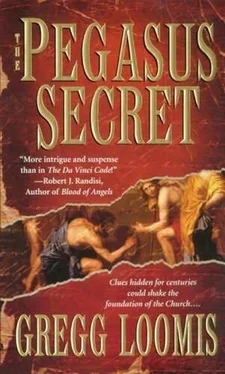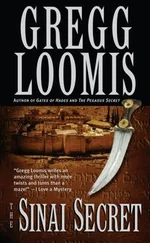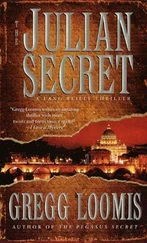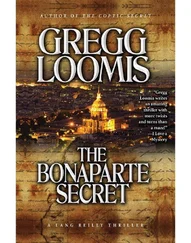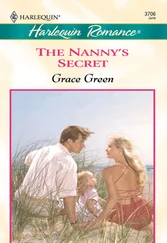Lang was certain he would have seen them had they been there when he came in. He picked them up, quickly searching. He would have been surprised to find anything useful, but he had to look. The idea the murderer had been there when he arrived, watched him go into the office, was enough to make the fish and chips lurch in his stomach.
Why not try to finish what They had failed to do in Atlanta?
Lang's question was answered soon enough. A police constable in the traditional four-button jacket and high, rounded hat was looking around the showroom. He held an automatic pistol pointed in Lang's direction.
Lang's first thought on seeing the weapon was that the killer had remained, disguised as a police officer. Then he remembered that the London police had abandoned tradition and begun to carry arms a few years ago.
"Someone called, said there'd been…" The cop's eyes widened and Lang realized he was still holding the bloody clothes.
"Look, I didn't…" Lang began, all too aware of how lame he sounded.
Judging by the tremor in his voice as he spoke into the radio transmitter fixed to the lapel of his jacket, the constable was more frightened than Lang was.
"Backup, more chaps 'ere in a 'urry," he shouted in an East End accent that would have done Eliza Doolittle credit. "'Urry th' bleedin' backup! I got the bugger whot done it right 'ere. Number Twelve Auld Bond Street."
Lang dropped the incriminating coveralls and backed through the curtains into the storage area, his hands extended so the policeman could see he was no threat. "I just walked in here, found him." The officer was young and clearly nervous. The muzzle of his weapon – a Glock nine-millimeter, Lang guessed – wavered. "An' I'm th' bleedin' Queen's Consort. Right where you are, Yank, 'old it right where you are."
Lang took another step backwards and came up against a large piece of furniture. The cop followed slowly. Maybe he was afraid if he let Lang get too many steps away he would miss if he had to shoot. Lang put a hand behind his back to feel his way around the obstacle. His fingers touched one of the picture frames he had seen earlier.
"'Ands up where I can see 'em," the constable demanded.
Lang was betting the cop wouldn't pull the trigger unless forced to, a risk Lang wouldn't have taken in Atlanta. Lang wasn't going to submit to arrest if he could avoid it without doing the young policeman any great harm. When and if Lang could be proved innocent, the tracks he was following would be cold. Besides, he had had more than enough experience with the criminal justice system to know it for the crapshoot it was. Lang's fingers ran along the ornately carved frame as the officer came closer. The hand that wasn't holding the gun was fumbling behind him-for handcuffs, Lang guessed.
"Both 'ands, I said…"
Lang took a deep breath and shifted his weight to his front foot. He gave a high kick that the Rockettes would have envied and the Glock spun from the officer's hand and clattered to the floor. As the officer spun to retrieve it, Lang swung the picture frame over his own head and the policeman's. It could not have fit better. The officer's arms were pinned to his sides by the gilded wood. The constable could do little more than glare.
"Trust me," Lang said, headed for the door; "I had nothing to do with this and I'd like nothing better than being able to stick around and prove it."
The constable didn't look much like he believed him.
Lang could already hear the pulsing sirens used by police all over Europe, the ones that reminded him of the movie The Diary of Anne Frank. It might as well have been the Gestapo coming for him: if he was caught, he wouldn't be sent to Auschwitz but he sure as hell would be going somewhere behind barbed wire where They could reach him at their leisure.
Lang stepped outside and walked away, resisting the impulse to run like hell. He was two blocks down the street before he realized he had left his umbrella.
London, St. James
Ten minutes later
There was a note waiting at the Stafford:
Gone shopping. Dinner at Pointe de Tour. Tea here at 1600 hrs.
Gurt
Attached was part of an article dipped from a magazine, informing Lang that the Pointe de Tour was one of the new London restaurants, located on the south side of Tower Bridge. French cuisine, multiple stars. Expensive.
Waiting around for Gurt didn't seem wise. He went to the room and packed his bag. He felt guilty as hell but she had no place in his plans. They had set him up, killing Jenson and calling the police to nab him virtually in flagrante delicto, as lawyers say.
Well, as some lawyers say, those who remember the phrase from law school.
Every law enforcement agency in Europe as well as the United States would have a reason to be looking for Lang once the fingerprints were lifted from the umbrella and it was traced back to Fortnum and Mason. Being part of a couple wasn't going to be sufficient cover, anyway, once the constable got to a police artist who could draw Heinrich Schneller's face.
Once run through Interpol, the fingerprints would put the Herr Schneller persona to rest for good.
Lang pocketed the cash Gurt had left in the room's safe, wrote her a note he knew was inadequate, and left.
Crossing the Mall to St. James's Park, he spent a few minutes pretending to watch the birds on Duck Island. No one else showed an interest in him or the waterfowl. He walked along Whitehall and the edge of the brown pea gravel of the Horse Guards' parade ground and the Paladin facade of Banqueting House, the site of royal revels. That princely party boy, that swinging sovereign, Charles I, had been beheaded there. Today, Lang wasn't nearly as interested in history as he was in anyone who might be following.
Of course, the fact he couldn't see Them didn't mean They weren't there. Lang appreciated Their cleverness.
Jenson's killer could have killed Lang in the shadows of the shop. In a country with fewer annual homicides than, say, Montgomery, Alabama, such a murder would have raised more questions than merely the death of the antique dealer would have. They had arranged to have Lang sought as the culprit.
Once Lang was in custody, he suspected They would know where to find him. A criminal organization with members in America and Europe would have access to police records and, quite likely, any jail in which he might be incarcerated. And what could he do? Who was going to believe a suspect· in two murders who raved about international conspiracies and secrets hidden in pictures? Clever.
Lang used a doorstep to pretend to tie his shoe, taking the -opportunity to look behind without being obvious about it. A group of Japanese, cameras clicking amid bird-chirp voices, stopped to photograph everything in sight. Lang left them behind as he turned right, hoping to disappear among the traffic, pigeons and milling crowd that was Trafalgar Square.
Lang had at least one advantage, small though it might have been. They didn't know about the bloody paper with the company name on it, presumably the source of the painting. They had killed Jenson to stifle the vary information They had overlooked.
At Charing Cross, a huge shopping plaza and office building rose over the Underground station. Lang stopped at a public phone, an uninteresting steel box similar to the ones in the States. Most of the old red phone boxes had long since become decorations in bars in the U.S., he supposed. At least that was the only place he still saw them. Unlike American phones, the directory was still attached. Lang found the number and dialed, keeping an eye on the small bag of possessions he had brought from the hotel.
By the time the brief conversation was complete, an anemic sun had broken through the clouds, its appearance more aesthetic than warming.
Читать дальше
